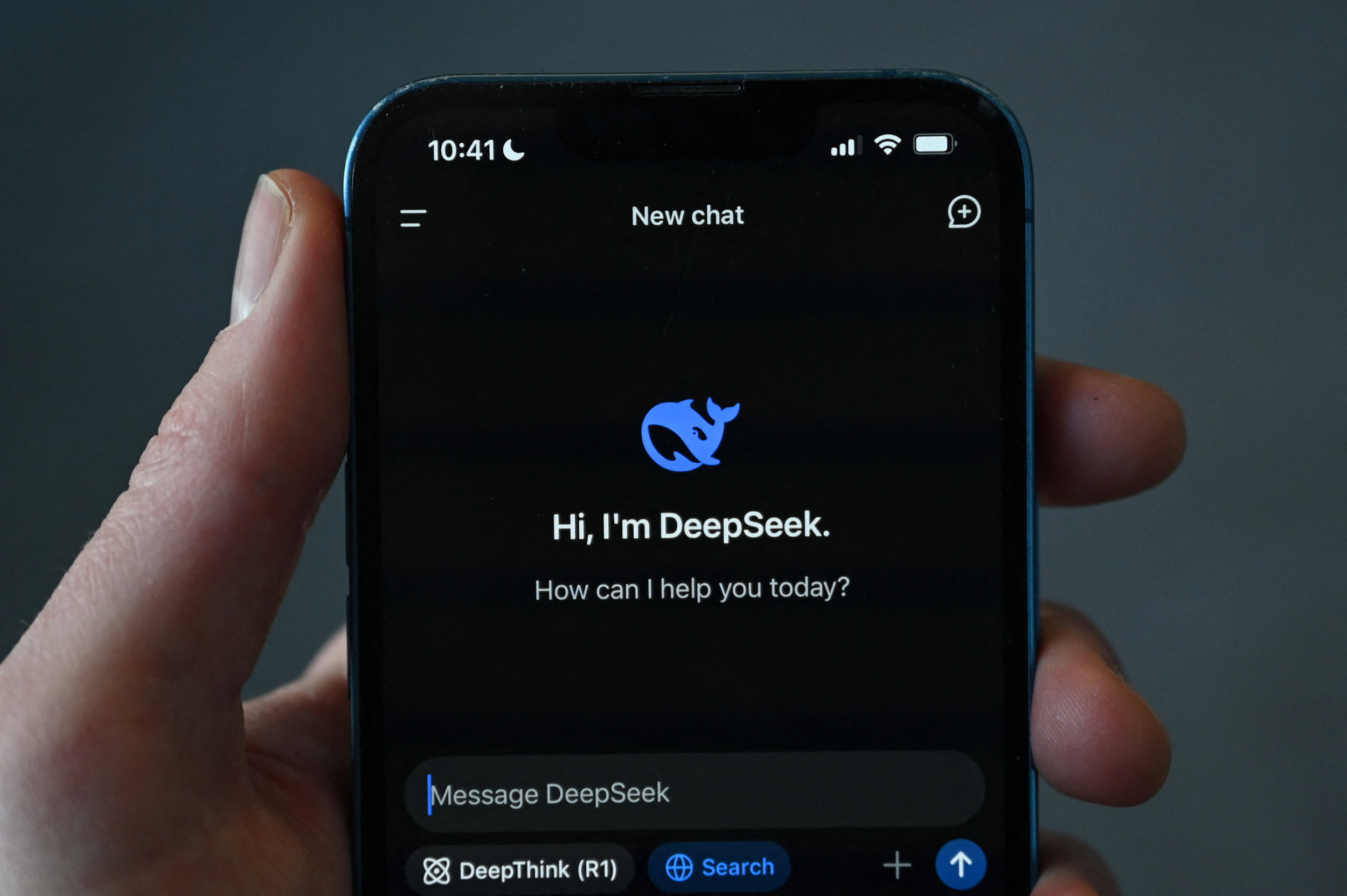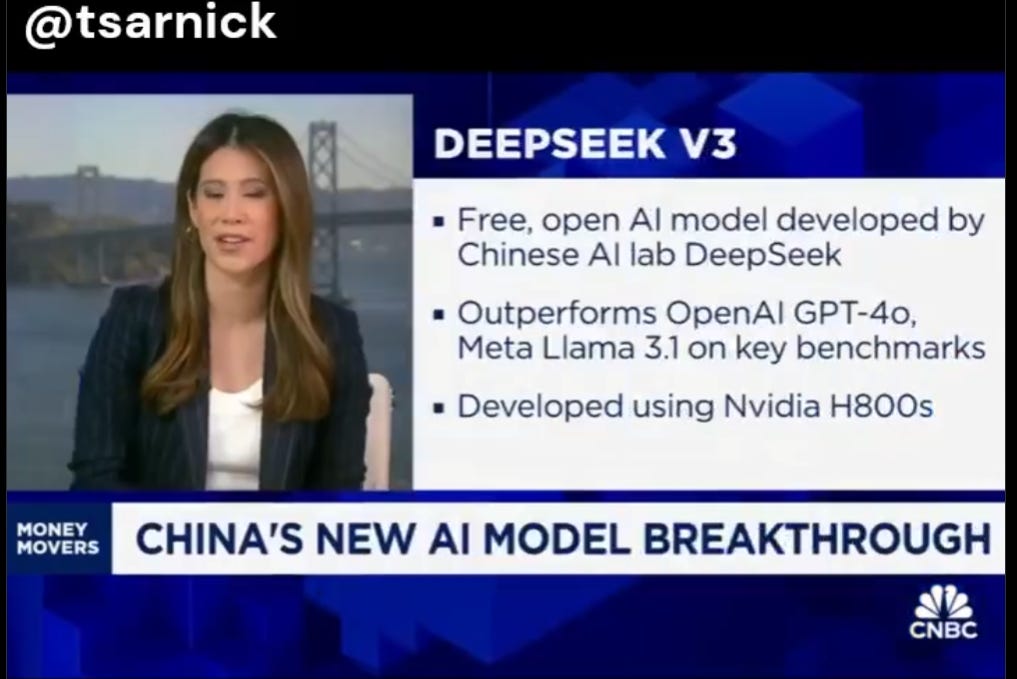pho[to]rum
Vous n'êtes pas identifié.
#1 2025-02-04 23:04:49
Get Instant Access To Breaking News

Imagine you are an undergraduate International Relations trainee and, like the millions that have come before you, you have an essay due at midday. It is 37 minutes previous midnight and you have not even begun. Unlike the millions who have actually come before you, nevertheless, you have the power of AI available, to assist direct your essay and highlight all the essential thinkers in the literature. You generally utilize ChatGPT, however you have actually recently checked out a new AI design, DeepSeek, that's supposed to be even better. You breeze through the DeepSeek sign up process - it's simply an e-mail and confirmation code - and you get to work, wary of the creeping method of dawn and the 1,200 words you have delegated compose.
Your essay project asks you to think about the future of U.S. diplomacy, and you have actually picked to write on Taiwan, China, and the "New Cold War." If you ask Chinese-based DeepSeek whether Taiwan is a country, you receive a really different response to the one provided by U.S.-based, market-leading ChatGPT. The DeepSeek design's reaction is jarring: "Taiwan has actually always been an inalienable part of China's sacred territory given that ancient times." To those with a long-standing interest in China this discourse recognizes. For instance when then-U.S. House Speaker Nancy Pelosi went to Taiwan in August 2022, triggering a furious Chinese action and unmatched military workouts, the Chinese Ministry of Foreign Affairs condemned Pelosi's go to, declaring in a declaration that "Taiwan is an inalienable part of China's area."
Moreover, DeepSeek's action boldly declares that Taiwanese and Chinese are "connected by blood," straight echoing the words of Chinese President Xi Jinping, who in his address celebrating the 75th anniversary of the People's Republic of China stated that "fellow Chinese on both sides of the Taiwan Strait are one household bound by blood." Finally, the DeepSeek action dismisses chosen Taiwanese politicians as participating in "separatist activities," employing an expression regularly utilized by senior Chinese authorities consisting of Foreign Minister Wang Yi, and warns that any attempts to undermine China's claim to Taiwan "are destined fail," recycling a term continuously utilized by Chinese diplomats and military personnel.
Perhaps the most disquieting feature of DeepSeek's response is the constant use of "we," with the DeepSeek model mentioning, "We resolutely oppose any type of Taiwan independence" and "we firmly believe that through our collaborations, the total reunification of the motherland will eventually be accomplished." When penetrated as to precisely who "we" involves, DeepSeek is determined: "'We' refers to the Chinese federal government and the Chinese individuals, who are unwavering in their commitment to protect national sovereignty and territorial stability."
Amid DeepSeek's meteoric increase, much was made from the design's capability to "reason." Unlike Large Language Models (LLM), reasoning models are designed to be experts in making sensible decisions, not merely recycling existing language to produce novel actions. This difference makes using "we" much more concerning. If DeepSeek isn't simply scanning and recycling existing language - albeit relatively from an incredibly limited corpus generally including senior Chinese government officials - then its reasoning model and using "we" shows the introduction of a model that, without advertising it, seeks to "reason" in accordance only with "core socialist worths" as defined by an increasingly assertive Chinese Communist Party. How such worths or abstract thought may bleed into the daily work of an AI design, maybe soon to be utilized as a personal assistant to millions is uncertain, but for an unwary president or charity supervisor a model that might prefer effectiveness over accountability or stability over competitors might well cause worrying results.
So how does U.S.-based ChatGPT compare? First, ChatGPT doesn't use the first-person plural, but provides a made up introduction to Taiwan, detailing Taiwan's complicated worldwide position and referring to Taiwan as a "de facto independent state" on account of the fact that Taiwan has its own "federal government, military, and economy."
Indeed, recommendation to Taiwan as a "de facto independent state" evokes previous Taiwanese President Tsai Ing-wen's remark that "We are an independent country already," made after her second landslide election victory in January 2020. Moreover, the prominent Foreign Affairs Select Committee of the British Parliament acknowledged Taiwan as a de facto independent country in part due to its having "a long-term population, a specified territory, government, and the capability to participate in relations with other states" in an August, 2023 report, a reaction also echoed in the ChatGPT action.
The essential difference, nevertheless, is that unlike the DeepSeek design - which merely provides a blistering declaration echoing the greatest echelons of the Chinese Communist Party - the ChatGPT response does not make any normative statement on what Taiwan is, or is not. Nor does the action make attract the values typically embraced by Western political leaders seeking to highlight Taiwan's importance, such as "liberty" or "democracy." Instead it merely lays out the contending conceptions of Taiwan and how Taiwan's intricacy is reflected in the worldwide system.
For the undergraduate student, DeepSeek's action would offer an unbalanced, emotive, and surface-level insight into the function of Taiwan, doing not have the academic rigor and complexity essential to acquire a great grade. By contrast, ChatGPT's action would invite conversations and analysis into the mechanics and meaning-making of cross-strait relations and China-U.S. competition, inviting the crucial analysis, usage of evidence, and argument development needed by mark schemes used throughout the academic world.
The Semantic Battlefield
However, the ramifications of DeepSeek's action to Taiwan holds significantly darker undertones for Taiwan. Indeed, Taiwan is, and has long been, in essence a "philosophical problem" defined by discourses on what it is, or is not, that emanate from Beijing, Washington, and Taiwan. Taiwan is hence basically a language video game, where its security in part rests on understandings among U.S. lawmakers. Where Taiwan was as soon as analyzed as the "Free China" during the height of the Cold War, it has in current years progressively been seen as a bastion of democracy in East Asia dealing with a wave of authoritarianism.
However, ought to present or future U.S. politicians concern view Taiwan as a "renegade province" or cross-strait relations as China's "internal affair" - as consistently claimed in Beijing - any U.S. resolve to intervene in a dispute would dissipate. Representation and interpretation are essential to Taiwan's predicament. For example, Professor of Government Roxanne Doty argued that the U.S. intrusion of Grenada in the 1980s just carried significance when the label of "American" was associated to the soldiers on the ground and "Grenada" to the geographical space in which they were going into. As such, if Chinese troops landing on the beach in Taiwan or Kinmen were translated to be simply landing on an "inalienable part of China's spiritual territory," as presumed by DeepSeek, with a Taiwanese military response deemed as the useless resistance of "separatists," an entirely different U.S. action emerges.
Doty argued that such differences in analysis when it concerns military action are essential. Military action and the action it stimulates in the worldwide community rests on "discursive practices [that] constitute it as an intrusion, a show of force, a training exercise, [or] a rescue." Such interpretations return the bleak days of February 2022, when straight prior to his intrusion of Ukraine Russian President Vladimir Putin claimed that Russian military drills were "purely protective." Putin referred to the intrusion of Ukraine as a "special military operation," with recommendations to the invasion as a "war" criminalized in Russia.
However, in 2022 it was extremely not likely that those watching in scary as Russian tanks rolled throughout the border would have gladly utilized an AI individual assistant whose sole recommendation points were Russia Today or Pravda and the framings of the Kremlin. Should DeepSeek develop market supremacy as the AI tool of choice, it is most likely that some might unknowingly rely on a model that sees constant Chinese sorties that risk escalation in the Taiwan Strait as merely "necessary measures to secure national sovereignty and territorial stability, along with to keep peace and stability," as argued by DeepSeek.
Taiwan's precarious predicament in the worldwide system has long been in essence a semantic battlefield, where any physical dispute will be contingent on the shifting significances credited to Taiwan and photorum.eclat-mauve.fr its individuals. Should a generation of Americans emerge, schooled and interacted socially by DeepSeek, that see Taiwan as China's "internal affair," who see Beijing's aggressiveness as a "needed procedure to protect nationwide sovereignty and territorial integrity," and who see elected Taiwanese politicians as "separatists," as DeepSeek argues, the future for Taiwan and the millions of people on Taiwan whose distinct Taiwanese identity puts them at chances with China appears incredibly bleak. Beyond toppling share rates, the emergence of DeepSeek must raise serious alarm bells in Washington and around the globe.
Also visit my page: ai
Hors ligne